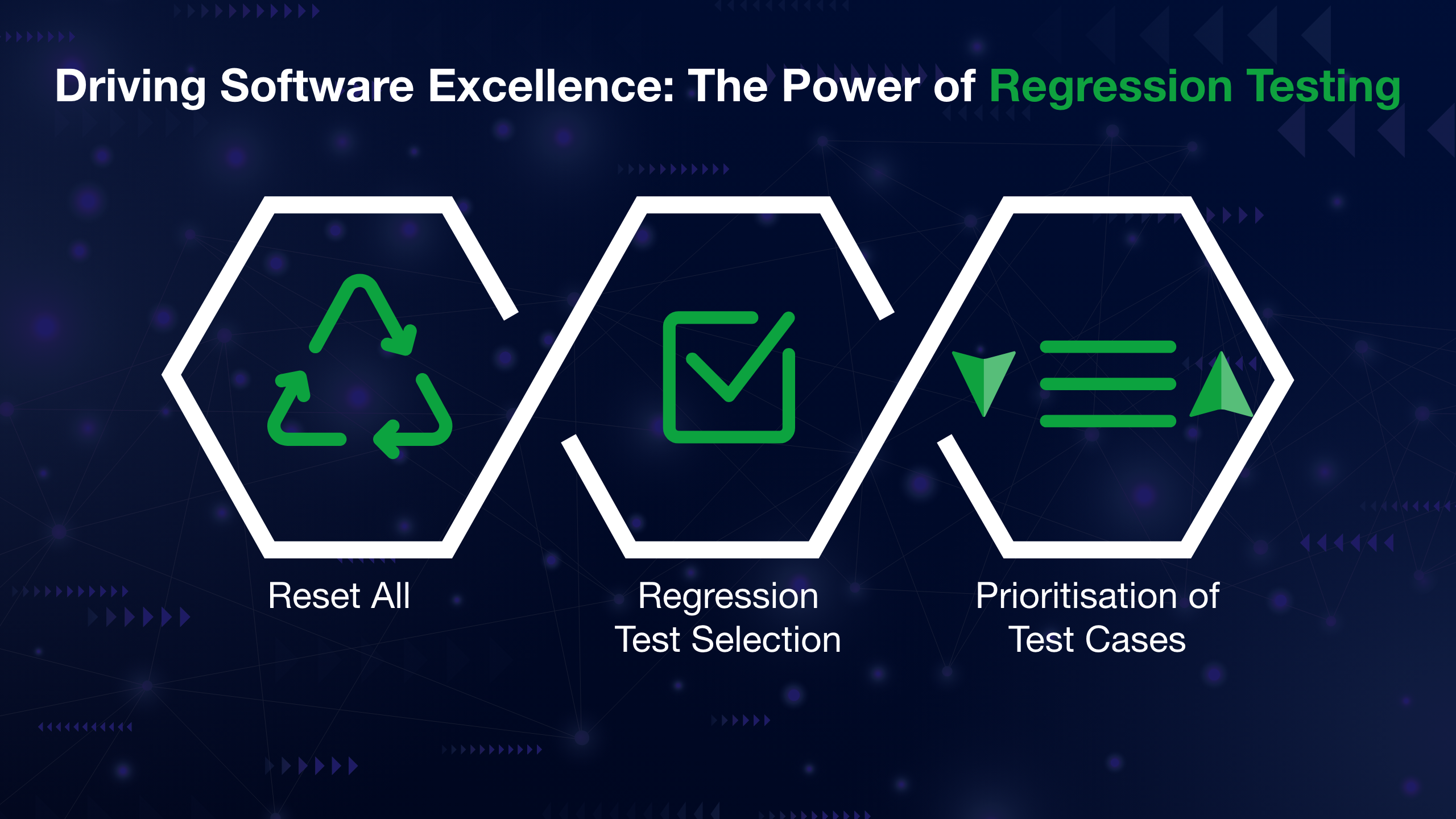As software evolves to meet ever-changing demands, the risk of inadvertently disrupting existing features grows. Regression testing steps up as the vigilant sentinel, tirelessly guarding against the emergence of regression bugs with each code modification.
Understanding Regression Testing
Regression testing is a quality assurance practice that verifies that recent code changes haven’t adversely affected existing features or functionalities. It involves re-running previously executed test cases to ensure that the existing functionalities still perform as expected after any code modifications.
Ultimately, the goal of regression testing is to ensure the stability and reliability of the software. By systematically checking for regressions, teams can maintain confidence in the integrity of the application, even as it undergoes continuous development and updates.
Why Regression Testing Matters
Imagine a scenario: A software application undergoes a significant update to introduce exciting new features. However, upon deployment, users started reporting issues with functionalities that were working perfectly fine before the update. This is a classic case of regression bugs slipping through the development process. Regression testing aims to prevent such situations by detecting and fixing regressions early in the development cycle, thereby minimizing potential risks and ensuring a seamless user experience.
Types of Regression Testing
Unit Regression Testing
This involves testing individual units or components of the software in isolation to ensure that changes in one part of the codebase don’t negatively impact other components.
Integration Regression Testing
Here, the focus is on testing the interactions between different modules or subsystems to detect any regressions introduced by integration changes.
System Regression Testing
This level of testing examines the system as a whole to verify that all integrated components function correctly together after code changes.
Selective Regression Testing
Instead of re-running the entire test suite, selective regression testing involves prioritizing test cases based on the areas of the application affected by recent code changes. This approach optimizes testing efforts while still ensuring comprehensive coverage.
Regression Testing Best Practices
Automation
Given the repetitive nature of regression testing, automation is crucial for its efficient execution. Test automation frameworks like Selenium, JUnit, or PyTest enable developers to automate the execution of test cases, saving time and effort.
Continuous Integration and Continuous Deployment (CI/CD)
Integrating regression testing into CI/CD pipelines ensures that tests are automatically triggered whenever code changes are made. This allows for early detection of regressions and facilitates rapid feedback loops.
Version Control
Utilizing version control systems such as Git enables developers to track changes to the code base and easily revert to previous versions if regressions are detected.
Comprehensive Test Coverage
Ensuring that the regression test suite covers critical functionalities and edge cases helps minimize the risk of undiscovered regressions.
Challenges in Regression Testing
- Resource Intensive: Running regression tests, especially for large and complex software systems, can be time-consuming and resource-intensive.
- Test Maintenance: As the codebase evolves, maintaining and updating regression test suites to reflect changes in the application can be challenging.
- Test Prioritization: With limited time and resources, prioritizing which test cases to include in regression testing becomes crucial to maximize test coverage.
Conclusion
Regression testing plays a vital role in software development by mitigating the risk of regressions and ensuring the stability and reliability of software applications. By adopting best practices such as test automation, continuous integration, and comprehensive test coverage, development teams can effectively incorporate regression testing into their workflows, delivering high-quality software products that meet user expectations.
Amidst this pursuit of excellence, Piccotalent offers a compelling solution. With their expertise in talent acquisition and training, they can empower teams with skilled professionals adept in regression testing methodologies.

 Profiles
Profiles  +91 9500107482
+91 9500107482  Top Reasons
Top Reasons


